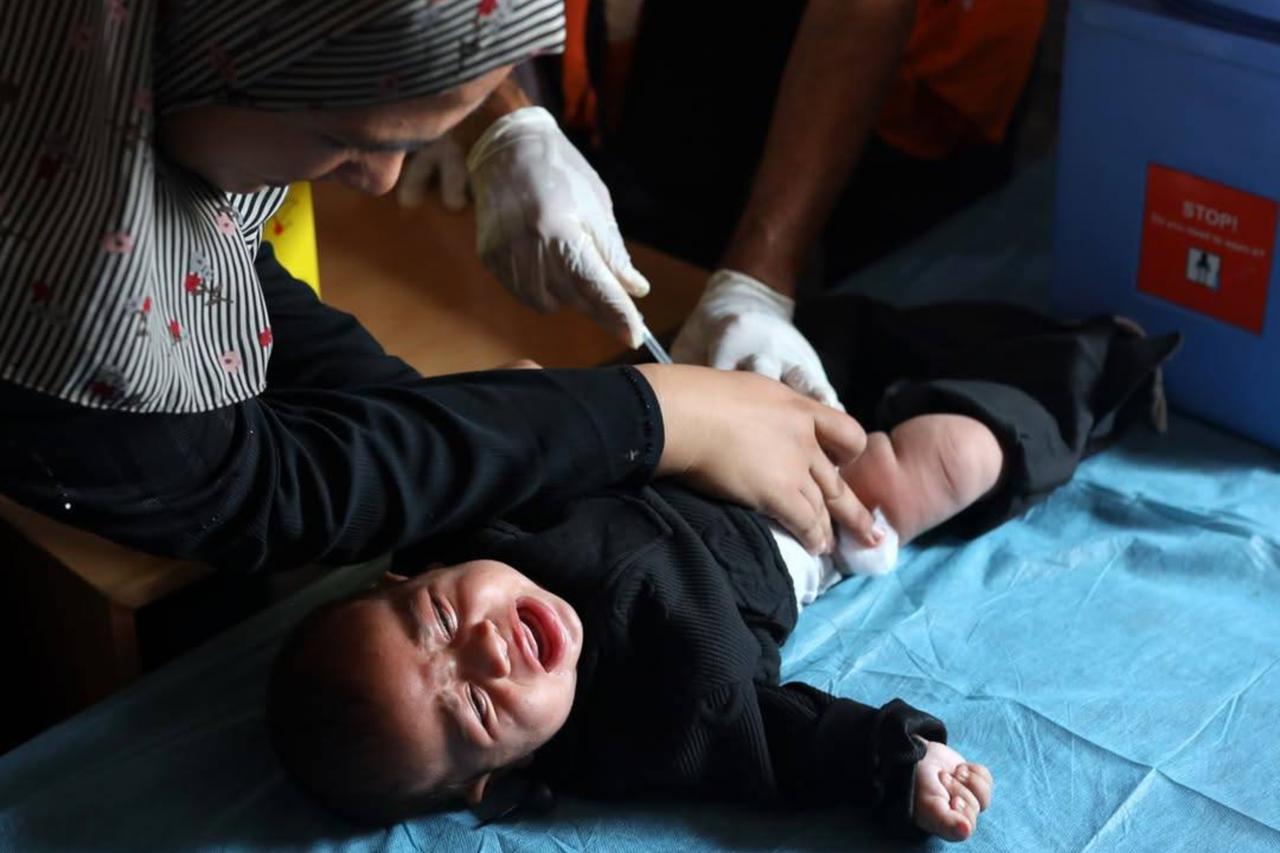
The World Health Organization (WHO) has vaccinated more than 10,000 young children in Gaza in just eight days of an ongoing immunization campaign that aims to reach over 40,000, the head of the U.N. health agency has announced.
WHO and its partner organizations have been carrying out an immunization campaign in Gaza that began on November 9 and has been extended until Saturday. According to WHO Director-General Tedros Adhanom Ghebreyesus, more than 10,000 children under the age of three received vaccines during the first eight days of the drive.
The campaign is planned to go on in stages, with a second and third phase scheduled for next month and for January 2026. The effort is designed as a broad public health vaccination drive to protect very young children, who are among the most vulnerable in conflict settings.
Tedros said the campaign seeks to reach more than 40,000 children in total, providing protection against a wide range of vaccine-preventable diseases. These include measles, mumps, rubella, diphtheria, tetanus, pertussis (whooping cough), hepatitis B, tuberculosis, polio, rotavirus, and pneumonia.
By focusing on several diseases at once, the campaign is intended to build up immunity among infants and toddlers who have lived through severe disruption of basic health services in Gaza.
The WHO chief said he was encouraged that the ceasefire in Gaza continues to hold, describing how this pause in fighting makes it possible for WHO and its partners to expand critical health services across the territory. He noted that the current conditions allow teams not only to carry out the vaccination campaign but also to support the re-equipping and reconstruction of the enclave’s heavily damaged health system.
"I am heartened to see the ceasefire continues to hold, as it allows WHO and partners to scale up critical health services across Gaza and support the re-equipping and reconstruction needed of its devastated health system," Tedros wrote on the social media platform X.
Since October 2023, the Israeli army has killed nearly 70,000 people in Gaza, most of them women and children, and injured more than 170,000, while large parts of the territory have been reduced to rubble.
Over the past two years, Israeli attacks have also hit health care facilities, hospitals, and medical staff, in what is described as a likely war crime, and deliveries of medicine and medical supplies have been cut off.